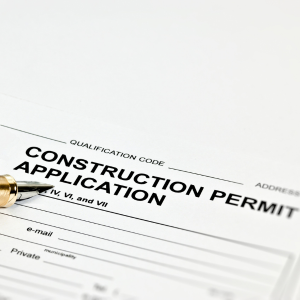
Selling a Texas house with unpermitted improvements can increase legal and financial concerns. However, knowing how to get retroactive permits or negotiate with investor home buyers in Fort Worth and in other cities can help. Consult legal professionals and be transparent to optimize property value.
Understanding the Legal Ramifications of Unpermitted Work in Texas
What are the legal consequences of selling a home with undisclosed unpermitted work in Texas?
In Texas, there may be severe legal repercussions if the seller fails to disclose any unpermitted work to the buyer when selling a residence. You may be held accountable if the consumer discovers the information after purchasing the property. Texas real estate laws state that failure to disclose such work may constitute fraud. This could lead to the buyer going to court and doing things like back out of the deal or asking for money to cover the cost of repairs.
Can I be sued for not disclosing unpermitted work? What are the potential legal liabilities?
You can be sued if you don’t tell people about work that isn’t allowed in a place you’re selling. Buyers can go to court and say they were harmed or scammed because information wasn’t shared. It’s very dangerous; if you hide this information, you might have to pay for repairs and court fees. If you’re selling a house with these kinds of problems, you should talk to a lawyer and Southern Hills Home Buyers to understand your obligations and protect yourself
What recourse does a buyer have if unpermitted work is discovered after closing?
If work that wasn’t allowed is found after the sale, the buyer can sue the seller. They could back out of the deal or go to court to get the money back that they spent on legalizing the land. It’s best to do a thorough check before the end of the day to find any work that wasn’t allowed. If it’s found after the fact, legal action may still be needed.
How can I avoid getting in trouble with the law for doing work that I’m not allowed to do? What should I do?

You should prevent legal issues from unpermitted work:
- Disclose any unpermitted work: Being honest helps prevent disputes.
- Get legal help: You can get help from a lawyer on what you need to say.
- Keep records: Write down all the work you do, the permits you get, and the conversations you have.
- Apply for permits after the fact: Getting the right permits can lower the risks.
- Talk to buyers clearly: Being honest with potential buyers helps you keep their trust.
Are there any particular laws in Texas that pertain to the disclosure of unpermitted improvements? Where can I locate this information?
Yes, Texas laws require sellers to disclose known unpermitted work to buyers. You can find detailed information about permitting and disclosure at your local building department. They are key resources for ensuring compliance before selling your property.
Could selling a property with concealed, unpermitted work result in some punishment?
Selling a house without informing the buyer about work that wasn’t permitted might result in several penalties. These could involve compensating the buyer for not telling them all they must know and maybe local government penalties. Taking care of any work prohibited before selling can help lower these financial risks.
Southern Hills Home Buyers provides professional advice and dependable solutions for further direction on handling unpermitted work in your property sale. Reach out to us now to assist in guaranteeing a seamless and lawful home-selling procedure.
How Unpermitted Work Impacts Your Home’s Value and Saleability
How does unpermitted work affect my property’s appraised value?
Unpermitted work can lower your property’s appraisal value. When figuring out how much a property is worth, appraisers look at a lot of different factors. Work that is done without permits can lower the value. This is because it could cost a lot of money and not follow safety or building codes. Work done on a house without a permit might not add as much value as planned, which could affect the sale price.
Will lenders provide mortgages on houses with unpermitted work? What are their requirements?
Lenders often hesitate to give mortgages on homes with unpermitted work due to legal liabilities and potential financing challenges. The majority of lenders stipulate that properties must satisfy specific criteria. Certain lenders may approve a loan, but they may impose conditions, such as requiring you to obtain retroactive permits or resolve the issues. It is crucial to verify these properties’ specific loan approval requirements with the lenders.
What strategies can I use to negotiate a fair price considering the unpermitted work?
To negotiate a fair price for a property with unpermitted work, consider these tactics:
- Work with Realtors: Find a realtor who knows how to handle unpermitted work issues.
- Highlight Positive Aspects: Point out other strengths of the property during negotiations.
- Use Pricing Strategy: Adjust the price to reflect the costs and effort needed for permits or corrections.
- Clear Communication: Be open about the unpermitted work, showing all details to potential buyers.
How can I accurately assess the value of my property with unpermitted issues? Should I get a professional appraisal?
To assess the value of your property with unpermitted issues, follow these steps:
- Obtain a Professional Appraisal: A knowledgeable appraiser can provide an impartial assessment that considers the unpermitted work.
- Perform a comprehensive home inspection: This will identify any potential issues that could potentially impact the property’s value.
- Seek the advice of an expert: Consult with an expert to gain insight into the effects of unpermitted work on your value assessment.
Can I still sell my house if work has been done on it without a permit? What do I have to do?
You can sell a house with unpermitted work, but some additional strategies might be needed:
- Sell “As-Is”: Disclose the unpermitted work and sell the property “as-is,” telling buyers they’ll inherit the responsibility.
- Obtain Retroactive Permits: If possible, get retroactive permits to legitimize the work.
- Adjust the Selling Price: Lower the price to account for necessary fixes, making the property more attractive to buyers in Texas.
How can I address the common concerns of buyers regarding unpermitted work?
Buyers frequently express concerns regarding unpermitted work due to the following:
- Safety and Compliance: Concerns about whether the work is safe and follows regulations.
- Future Repairs: Worries over future repair costs or legal issues.
To address these concerns:
- Clear Disclosure: Share all information about the unpermitted work upfront.
- Transparency: Tell the truth about the problems and ways to fix them.
- Offer Solutions: To calm people down, suggest solutions like getting permits or changing the price
Knowing these issues guides one through the intricacies of marketing houses with unapproved work, therefore guaranteeing more seamless transactions.
Transparent Disclosure of Unpermitted Work to Potential Buyers
What information should I include when disclosing unpermitted work to potential buyers?

It’s important to be honest when selling a house with unpermitted work. Here’s what you should include:
- Work Description: Explain what was done without permission, what improvements you want, and how big they will be.
- Legal Issues: Explain if there are any legal problems because the work doesn’t meet local building codes or zoning laws.
- Documentation: Share any existing documents related to the work, such as contractor invoices, plans, or photos, even if not permitted.
- Impact on Real Estate Value: Discuss how the unpermitted work might affect the property value and discuss getting retroactive permits if possible.
Honesty helps build trust with buyers and prevents legal problems later on.
What is the best way to communicate about unpermitted work during the sales process? What language should I use?
When talking about illegal work, good communication is very important. Here’s how to go about it:
- Transparency: Be open from the beginning; don’t let buyers find out independently.
- Clear Language: Use simple and direct language. Refrain from using technical terminology that could perplex purchasers.
- Sales Process Integration: Introduce the subject promptly, preferably during preliminary discussions or presentations.
- Emphasize Solutions: If feasible, discuss options such as obtaining a retroactive permit or providing repairs or enhancements as part of the agreement.
Clear communication makes the process smoother.
How can I ensure transparency and avoid legal issues related to disclosure? What documentation is necessary?
To be transparent and reduce legal risks, collect and present these documents:
- Compliance Records: Provide records of any efforts to make the work comply with rules.
- Building Permits or Applications: Show that you have tried to get the necessary permits, even if they haven’t been approved yet.
- Inspection Reports: Include inspection reports from the past that are related to the work that wasn’t allowed.
Talking to a real estate lawyer can also help determine the most important documents.
What documentation should I gather and provide regarding the unpermitted work? How should this be presented?
To disclose unpermitted work, gather these documents:
- Construction Details: Collect detailed records of the work, including contracts, blueprints, and receipts.
- Expert Assessments: Have a licensed inspector look at the work for safety and compliance.
- Presentation: Organize these documents neatly and make them easily accessible during showings or negotiations.
Sharing this information upfront helps manage buyer expectations and ease negotiations.
Addressing Unpermitted Work Before or During the Sale
Can I obtain retroactive permits for the work that is not permitted? What is the process in Texas?
Texas allows retroactive permits for unpermitted work, but it takes steps. Contact your local building department to learn their requirements. They will guide the application and document submission. You must prove your work meets safety and building codes. This may require inspections and work changes.
What is the cost of obtaining permits or bringing the work up to code? How can I get an estimate?
The cost of getting permits and bringing work up to code can vary. To get a good estimate:
- Budgeting: Look at potential costs for permitting and code compliance.
- Professional Appraisal: Hire an appraiser or contractor to assess the unpermitted work and give you a cost estimate.
- Financial Planning: Check your budget and plan for these costs.
What are my options if obtaining permits is too costly or difficult? Can I adjust my strategy?
If getting permits is too expensive or hard, consider:
- Selling a House “As-Is”: Tell potential buyers about the unpermitted work, even though it might lower the selling price.
- Adjusting Financial Risks: Consider the financial impact and decide if lowering the price could work.
- Exploring Legal Avenues: Talk to a real estate attorney for other strategies.
Should I hire an attorney or building professional to help with permits or legal aspects? When is this advisable?

Hiring an attorney or building professional can be helpful when:
- Complex Legal Issues: If the permit requirements and legal details seem tough.
- Real Estate Transactions: Expert advice can reduce risks when selling a property with unpermitted work.
- Expert Advice: Attorneys and building professionals offer specialized knowledge to guide you effectively.
For more help, Southern Hills Home Buyers can help you sell a house in Texas with unpermitted work.
Minimizing Financial Risks Associated with Unpermitted Work
What are the potential financial losses associated with undisclosed unpermitted work?
Unpermitted work that goes unreported can result in significant financial risks, including liabilities and a decline in property value. If buyers learn about this work after the fact, they may request a lower price or even cancel the sale. Additionally, buyers may file a lawsuit, which could result in expensive repairs or penalties.
How can I minimize financial risks during the selling process? What strategies can I use?
To lower financial risks during the selling process, try these strategies:
- Full Disclosure: Be honest about any unpermitted work to build trust and prevent surprises.
- Documentation: Collect all permits and documents related to the property’s improvements.
- Consultation: Work with a real estate professional who knows how to handle properties with these issues.
What is the most effective method for managing the potential expenses associated with addressing the unpermitted work? What is the most effective method for managing my finances?
Here’s how to manage costs and budget effectively for unpermitted work:
- Cost Assessment: Figure out the costs for permits, inspections, and needed repairs.
- Budgeting Plan: Make a detailed budget with all expected costs and find ways to cut expenses.
- Contingency Fund: Save extra money for unexpected costs.
What are some strategies to improve the financial outcome from the sale, even with unpermitted work? What factors influence this?
Improve the financial outcome despite unpermitted work with these strategies:
- Renovation: To raise the value of your home, spend money on necessary repairs and get permits.
- Setting a competitive price: Taking into account any unresolved issues is the pricing strategy.
- Marketing: Draw attention to unique qualities to get people interested in do-it-yourself projects.
Market conditions, buyer demand, and the extent of unpermitted work influence this. A smart strategy can greatly boost your financial outcome.
FAQs:
What should I consider before selling a house with unpermitted work in Texas?
Before selling, check how the unpermitted work might affect your home’s value. You can try getting a retroactive permit or talk to a real estate expert for advice.
Can I sell my Texas home “as-is” with unpermitted renovations?
Yes, you can sell it “as-is,” but you must be honest about any unpermitted work and disclose it during the sale to avoid legal problems.
How might unpermitted work affect my home’s sale in Texas?
The sale can be slowed, negotiations can be impacted, and the value of the home can be reduced by unpermitted work. Buyers may request repairs or a reduced price.
What are the potential risks of selling a home in Texas without addressing unpermitted work?
Cash home buyers in Rockwall and in surrounding cities that are concerned about uninspected work may offer lower prices and raise legal concerns. It is advisable to resolve these matters at the outset.
How can I increase the likelihood of selling a property that has been subjected to unpermitted modifications?
Hire realtors who have experience with these kinds of properties. They can help you, negotiate terms, and give you ideas on how to better market your home.
Is there any advantage to disclosing unpermitted work when selling?
Yes, disclosing builds trust with buyers and protects you from lawsuits. Being open can make negotiations smoother.
Key Insights
- If you’re selling a house in Texas with unpermitted work, proper documentation and understanding of local building codes are essential. Full disclosure of any unpermitted construction is necessary to avoid legal issues.
- Buying a house in Texas with unpermitted renovations can be risky. Both buyers and sellers need to know how to manage these risks.
- You can sell a home in Texas “as-is,” even if it has unpermitted work. However, you must be transparent and disclose all details to prevent legal troubles.
- To comply with Texas property laws when selling a house with unpermitted work, seek professional legal advice. You might need to obtain retroactive permits.
- Understanding the Texas housing market can help you set a competitive price for homes with unpermitted improvements. This strategy can enhance your selling efforts.
- Selling a home without permits in Texas can be challenging. Working with a knowledgeable realtor familiar with Texas real estate regulations can be beneficial.
- Consider rent-to-own options if selling a house with issues or unpermitted work is difficult.
- Conduct thorough due diligence, like home inspections, to understand potential liabilities when buying or selling Texas property with unpermitted work.
- Homeowners must clearly communicate about any unpermitted additions to prepare buyers and address potential concerns effectively.
- Legal options for disputes over unpermitted work during house sales in Texas are available. Knowing these options can protect your interests.
- Selling a home with unpermitted work in Texas can affect its appraisal value. Consult a real estate expert for guidance on pricing strategies.
- Texas homeowners with unpermitted improvements should consider how these affect property marketability and take steps to reduce associated risks.
- Proper identification and disclosure of unpermitted electrical systems or plumbing issues are essential for smooth sales in Texas.
- Addressing potential negative perceptions—such as costs or safety concerns about unpermitted work—can improve buyer confidence.
- Whether handling a sunroom addition or patio covers without permits, ensure all relevant details are disclosed to potential buyers in Texas.
- Verify original building permits with local authorities to accurately assess the status of unpermitted work before proceeding with any property transaction.
- Use comprehensive marketing strategies to highlight a property’s strengths while transparently addressing any unpermitted improvements or repairs needed.
- Investors looking to buy homes in Texas should weigh potential returns against the costs of necessary legal compliance and renovations for properties with unpermitted work.
- Learn when retroactive permitting might be needed and how to get it, ensuring your house meets local rules when selling.
- Be aware of financial risks involved with unpermitted renovations, including potential liabilities for non-disclosure during Texas property sales.
- Maintain detailed and accurate records of all home improvements to maintain transparency and trust throughout the home-selling process.
Need to sell your home fast? Skip repairs and hassle—Southern Hills Home Buyers offers fair cash deals and handles everything. Call (214) 225-3042 for a no-obligation offer today!
